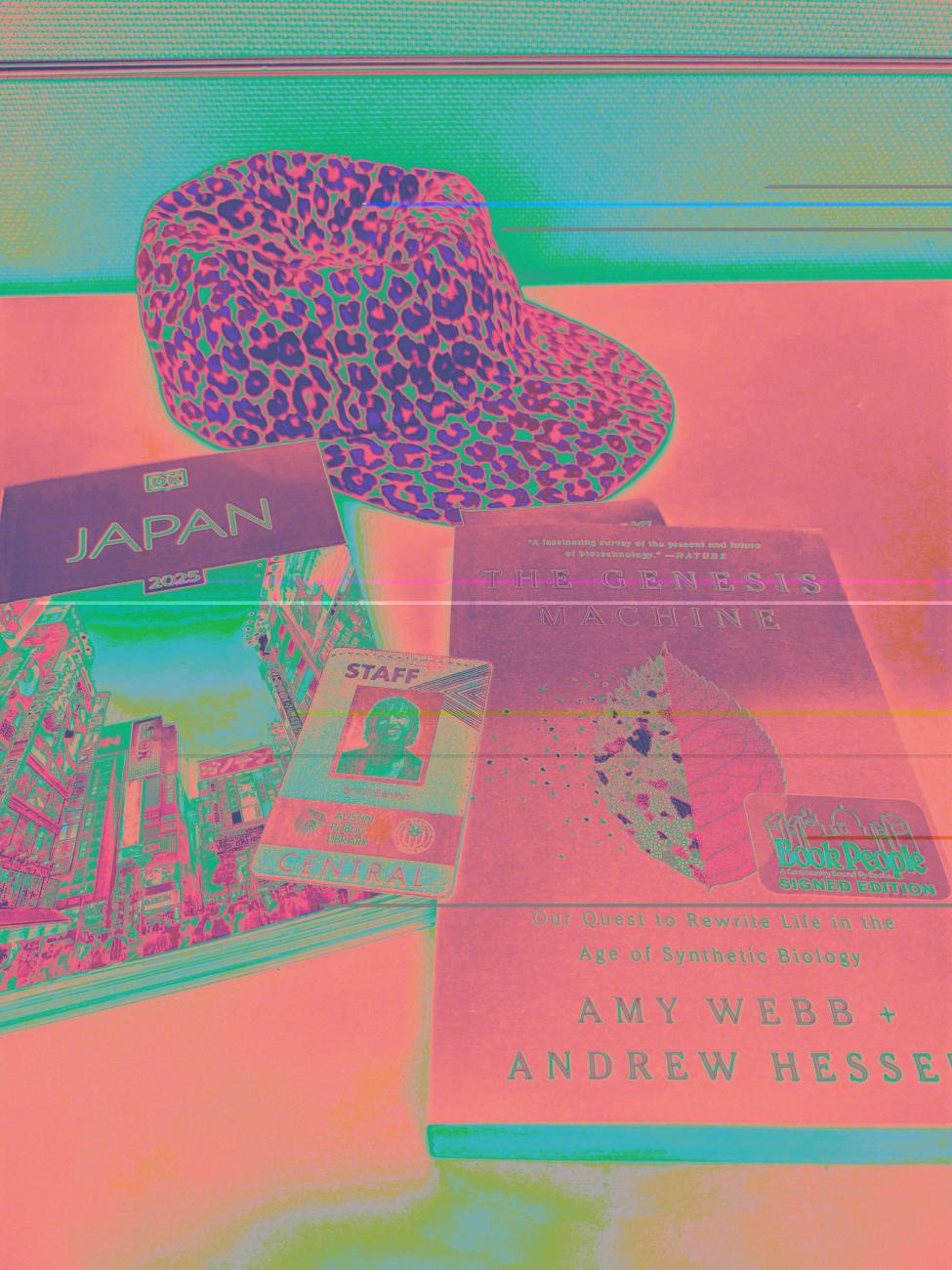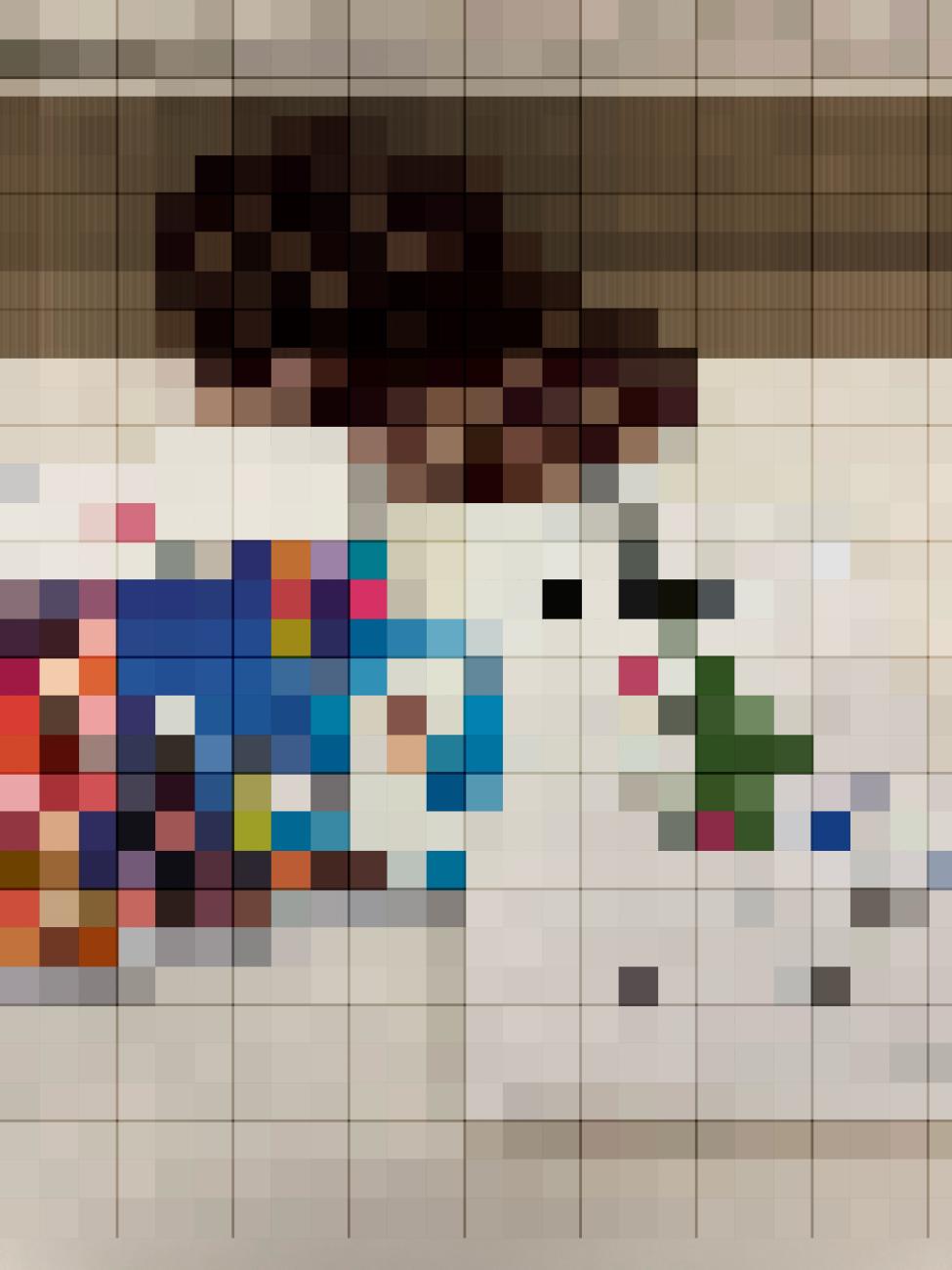

At 4:44 a.m., the hour when vending machines weep and library ghosts alphabetize regrets,
I dreamed I was a genome—rewritten as a travel itinerary.
I woke face-down in the Japan guidebook, page warped by drool and prophecy.
The skyline on the cover bent slightly, like it too had something to confess.
The leopard-print hat on the table looked at me funny—
like it remembered a version of me I’d never been.
I put it on anyway.
It made my thoughts feel pixelated in a good way:
half stealth mode, half jazz riff.
That’s when I noticed the book: The Genesis Machine.
Still warm from a sunbeam or maybe an argument.
Its pages whispered about rewriting life—
as if biology were just another bureaucratic form with bad kerning.
Someone had left it open to the chapter titled “Encoded Intentions.”
The phrase glowed like bioluminescent graffiti in a fungal subway.
Below it, the BookPeople sticker pulsed.
I could swear it blinked.
Nearby sat a staff badge—but it wasn’t mine.
It belonged to someone who looked almost like me,
but made slightly different choices.
Maybe they remembered their Qigong routine.
Maybe they filed the divorce before the mushrooms got chatty.
Either way, their smile on the badge was full of secrets.
Like they knew what “urban intention” really meant.
I touched it.
The laminate was soft, worn down by years of psychic elevator rides
and toner arguments.
The hologram flickered—once, twice—
then showed me an image:
not of the library,
but inside the DNA of the library.
Spines arranged like chromosomes.
Stories encoded in triplets.
Dewey decimals replaced with mushroom spores.
Something clicked.
This wasn’t about me anymore.
This was about the Floravores—
what they were building beneath the city:
an underground syllabus written in spores,
binding the synthetic and the organic,
the bureaucratic and the ecstatic.
A quest not for life, but for revision.
The Genesis Machine wasn’t a book.
It was a manual for negotiating with the COREMOTHER.
A passport—not out of the country—
but out of the carbon contract.
I looked back at the travel guide.
It was no longer a map of Japan.
It was a terrain of possible selves.
A hummingbird slammed into the window.
Not hard—just enough to make a sound like a kiss and a glitch.
I ran to the glass.
There it was: hovering, steady,
with a tiny red glyph on its back.
The glyph.
The one from the mycelium by the rosemary.
The glyph that meant vote.
The glyph that meant change direction, but don’t forget your shape.
It blinked.
I blinked back.
The jackhammer started again—
but this time it was coming from inside the book.
The pages flipped themselves open,
like they were wind-powered or possessed.
“Where do you want to mutate today?”
—the cover asked, in a voice that sounded like mine
(if I’d studied synthetic biology instead of library science)
So I picked up the passport.
Picked up the badge.
Slipped them into the back of The Genesis Machine
like pressed flowers.
Then I turned the page.
Let the jackhammer sing.
Let the hat think.
Let the Floravores vote.
And above all—
let the library breathe.
Want to spiral deeper?
We could let the badge become a key.
Let the hat become a memory filter.
Trace the BookPeople sticker into a mind-map
of underground knowledge cults.